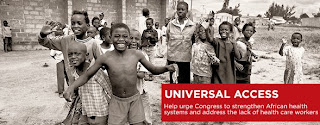Exploration in Africa
(African Literature)
Instructor: Kat Thoms
Required Text:
Achebe, Chinua. Things Fall Apart. 50th Anniversary ed. New York City, NY: First Anchor Books Edition, 1994.
Forna, Aminatta. Ancestor Stones. New York City, NY: Grove P, 2006.
Ngozi Adichie, Chimamanda. Purple Hibiscus. New York City, NY: First Anchor Books Edition, 2003.
DAY EXPLORATION ASSIGNMENT
Day 1 Exploring Africa “Things Fall Apart” ch. 1-9
Day 2 African Culture “Things Fall Apart” ch. 10- 16
Day 3 Religion in Africa “Things Fall Apart” ch. 17-end
Day 4 African Government “Ancestor Stones” pg 5-103
Day 5 Women in Africa “Ancestor Stones” pg 107-249
Day 6 African Society “Ancestor Stones” pg 250-end
Day 7 Ancestor Stones “Purple Hibiscus” pg 1-110
Day 8 Purple Hibiscus “Purple Hibiscus” pg 111-206
Day 9 My Life “Purple Hibiscus” pg 207-end
Day 10 American Dream & Silence Group Projects
Day 11 Almost There Group Projects
Day 12 Last Day Party & Presentations
The unit will begin with some basic background on Africa. This will include geography and a brief summary of the colonization of Africa, the major players, important countries etc. Background knowledge will assist them when they read about the different issues, places and authors.
We will be exploring Africa and issues in Africa through three novels. “Things Fall Apart”, “Ancestor Stones” and “Purple Hibiscus.” Each of these novels discusses different aspects of African life and cultural issues. “Things Fall Apart” is first on the syllabus because it depicts more of the colonization period of Africa and the issues surrounding European invasion. Some important topics we will cover are religion, women, government, traditions and culture and men’s roles.
The course will then transition into “Ancestor Stones” where students will be introduced to a more graphic illustration of African culture. During this novel the class will focus mainly on women in Africa and the impact of religion and government on women. This portion of the class will deal with topics such as FGM, healthcare, religion, government and politics, education and slave labor. This novel is a bit longer than the other two, so if more time is needed there is an extra day for make-up or class projects. I also introduced the final group projects in this section. Students will be assigned groups and for the rest of the unit they will be working together to research and design a presentation for the class on designated topics.
The transition from “Ancestor Stones” to “Purple Hibiscus” should be easy because both novels have female characters and have similar issues. In the “Purple Hibiscus” section we will be focusing more on individual life in Africa and how that is affected through religion, government, family and education. Students will compare their own lives to character lives in the novel. We will also compare African life to American life and discuss the importance of the characters wanting to come to America.
Finally, at the end of the unit we will have a class celebration with African food, movies and the presentations of group projects.
....................................................................................
As you can see I chose to design a curriculum based on African Literature. For my class I chose "Things Fall Apart", "Ancestor Stones" and "Purple Hibiscus." My students will be engaged in learning and exploring African culture through these novels and hopefully open their minds and eyes to the world around them. I also include a film: Women with Open Eyes that shows women's role in African culture. As well as a group project designed for students to explore a major issue in Africa.
The Bleeding of the Stone
16 years ago

